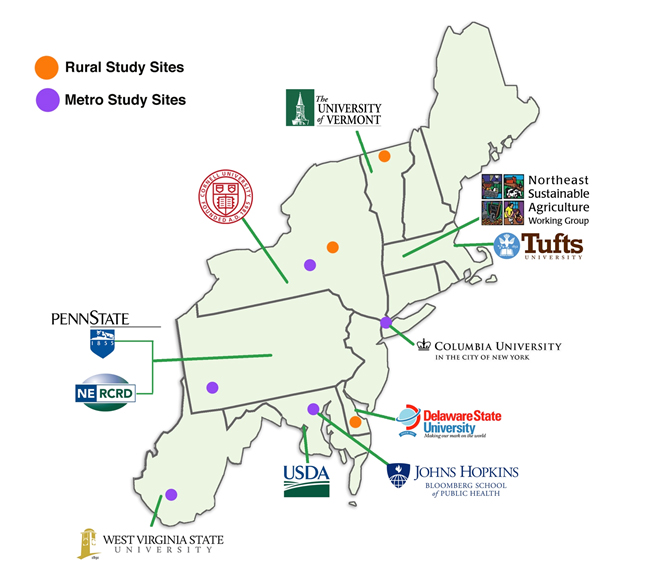Enhancing Food Security in the Northeast with Regional Food Systems
The Center for a Livable Future is one of several research institutions participating in a project funded by the U.S. Department of Agriculture studying whether greater reliance on regionally produced foods could improve food access and affordability for disadvantaged communities, while also benefiting farmers and others in the food supply chain.
Launched in 2011, the five-year project explored the benefits of re-regionalizing the food system. The study suggests that with the region’s geography and potential to develop regional supply chains, we can produce, distribute and meet a greater share of our population’s food needs in ways that improve food access and availability for disadvantaged communities in particular. The project focuses on 13 underserved community sites within eight locations across the Northeast, defined as 12 states from Maine to WV and the District of Columbia. Project locations include: New York City, Syracuse, Baltimore, Pittsburgh, Charleston, WV; and the rural areas of Essex County, VT, Madison County, NY, and Southern Delaware.
This study examines how regional food systems can make more efficient use of natural resources, benefit communities, and improve the economic and social welfare of farmers, distributors, retailers and consumers. Emphasis is placed on taking a systems approach, connecting food production, processing, and distribution with a community’s total food environment. The focal point of all of the research teams is a full-diet market basket of eight foods that are or can be produced or processed in the Northeast states in significant quantities. These are milk, bread, ground beef, potatoes, apples, cabbage, canned peaches and frozen broccoli.
Building on the Center’s expertise on community-level research, the Center’s role on the project is to lead the consumption group work and provide input into the evaluation component. The project team adapted the Center’s community food assessment instrument for the customer intercept surveys.
The project is led by Stephan J. Goetz, Director of the Northeast Regional Center for Rural Development (NERCRD) at Penn State University. More information about this study can be found at the EFSNE website. View the updated list of the project team members.
